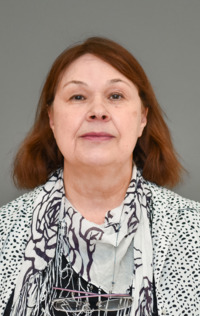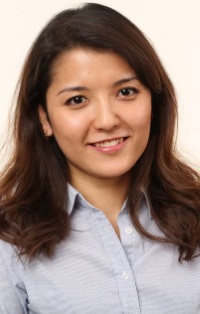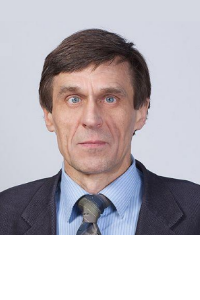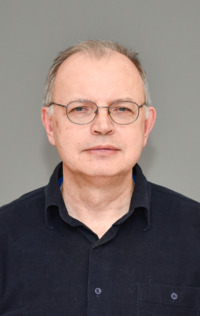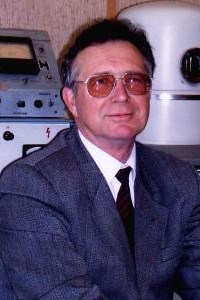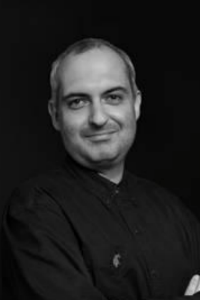2years
of study
120 ECTS Full-time mode
Tuition fee is 437 000 rubles per year (relevant for 2024/25 academic year).
Minimal entrance score is 40 points.
Program
This program gives a wide range of options to choose the specialization form and, on the other hand, it is based on modern and traditional approaches of materials development: Thermodynamics, Kinetics, Phase diagrams.
The key advantages of the program
The focused scientific track
For each student, we form a scientific and educational track based on their research interests, which allows them to concentrate on scientific work and deepen the required knowledge in particular disciplines.
Effective research supervision
Research work under the supervision of senior staff includes theoretical and experimental studies, publications in scientific journals, presentations and conferences for young scientists. Thus, supervisors encourage students to work and plan independently, give support and guidance, providing continuous motivation throughout the program. Students can also choose the supervisor based on their research topic and professional experience.
Practice-oriented learning
Students work in teams for industrial projects and collaborate with scientists and students from other universities. In terms of scientific work, students have direct access to the latest advances in the development of alloys and use modern scientific equipment and specialized software during their research.
Publications in the first-quartile journals
Students actively publish their research papers, as well as co-authored articles in scientific journals with a high impact factor. We invite leading scientists as reviewers, and we also help students to increase the Hirsch index.
Job opportunities
Throughout the program, students participate in research projects related to applications. This is aimed to prepare students for working in emerging high tech industries or research laboratories that exploit nano and micro scaled materials and systems of various functionalities. The students will also understand the potential for the technology commercialization and its social impact. The alumni pursue successful careers in nuclear, aerospace, and automotive industries, new materials research in Russia, Europe, USA, China and other countries.
13
compulsory foundational courses along with elective courses focusing on specific materials and devices.
Research work can be focused in one of the following topics:
- Science, technology and devices based on magnetic nanostructures
- Nanostructured carbon materials and multiphase polymer nanocomposites
- Nanoscale science and fundamental concepts in nanotechnology
- Micro- and nanofabrication and structural characterization
Fundamental training via core and required courses:
- Modern Methods of Structural Characterisation of Micro- and Nanosystems
- Foreign Language (English / Russian)
- Technology and Materials of Quantum Electronics
- Management of Quality
- Project Management
- Methods of Mathematical Modeling
- Metal-carbon Nanocomposites
- Physics & Engineering of Magnetic Nanomaterials, Micro- and Nanosystems
- Embedded Systems and Software Engineering
Research supervisors
Larisa Panina
DSc, PhD, professor at Institute of Novel Materials and Nanotechnology, Division of Technology for Electronic Materials
Majors: “Methods of mathematical modeling” and “Micro- and nano sensors”
+7 495 638-44-51
alpanina@misis.ru
Alexander Morchenko
PhD, Prof. (Ass.) at Institute of Novel Materials and Nanotechnology, Division of Technology for Electronic Materials
Majors: “Physics & Engineering of magnetic nanomaterials, micro-and nanosystems”
Supervision Plan: 1-2 students per year
+7 495 638-44-51
dratm@misis.ru
Vladimir Kozlov
DSc, PhD, professor at Institute of Novel Materials and Nanotechnology, Division of Technology for Electronic Materials
Majors: “Metal-carbon composite nanomaterials” and “Synthesis of nanomaterials and heterostructures”
Supervision Plan: 1-2 students per year
+7 495 638-45-43
kozlov.vv@misis.ru
Sergey Marenkin
DSc, Prof. at Institute of Novel Materials and Nanotechnology, Division of Technology for Electronic Materials; Leading scientist at RAS, academic at AES Russia
Majors: “Spintronics materials and devices”
Supervision Plan: 1-2 students per year
+7 495 954-54-72
marenkin.sf@misis.ru
Oleg Rabinovich
PhD, Assis. Prof. at Institute of Novel Materials and Nanotechnology, Division of Technology for Electronic Materials; adviser at RANS
Majors: “Technology and Materials of Quantum Electronics” and “Simulation methods”
Supervision Plan: 1-2 students per year
+7 495 638-46-08
rabinovich.oi@misis.ru
PhD, Assistant Professor at Institute of Novel Materials and Nanotechnology, Division of Technology for Electronic Materials
Majors: “Embedded systems and software engineering”
+7 926 450-60-88
yudanov.n@misis.ru
FAQ
When do you start accepting new applications?
We start considering new applications for the next admission year in October. First interviews initiate in February and are conducted on a weekly basis till the end of July.
What documents are required to apply?
You are requested to submit the following admission documents:
- A scanned copy of the passport biographical page with the Notarized translation into Russian language;
- A scanned copy of the Bachelor diploma and Transcript with the notarized translation into Russian language;
- The Statement on standard medical form indicating no contraindications for studying in Russia, with note on results of HIV test with notarized translation into Russian language.
The Medical Certificate is expected to have the statements of the following medical specialists: therapist, surgeon, neurologist, otorhinolaryngologist, ophthalmologist, as well as the results of RW blood test and ECG.
To register for the interview it is enough to submit the originals of your passport bio-page and your Diploma with transcript as well as your motivation letter and CV in English.
What is the entrance exam?
The entrance exam is organized online in the form of interview. You will be expected to answer several questions related to the subject area. To get prepared use examination content at the top of the page.
What is minimum admission score?
To get enrolled a candidate has to score at least 40 points during the interview.
What is the application deadline?
New applications are accepted till August 8. Keep in mind that this is also the deadline to submit the complete admission documents pack with notarized translations.
How can I apply?
You need to fill out the application form via “Apply now” button.
How can I get scholarship?
Scholarships are available via Russian Governmental Scholarship program. Visit future-in-russia.com for more information. You can also take part in the International Competition ‘Open Doors: Russian Scholarship Project’ for prospective Master’s students.
